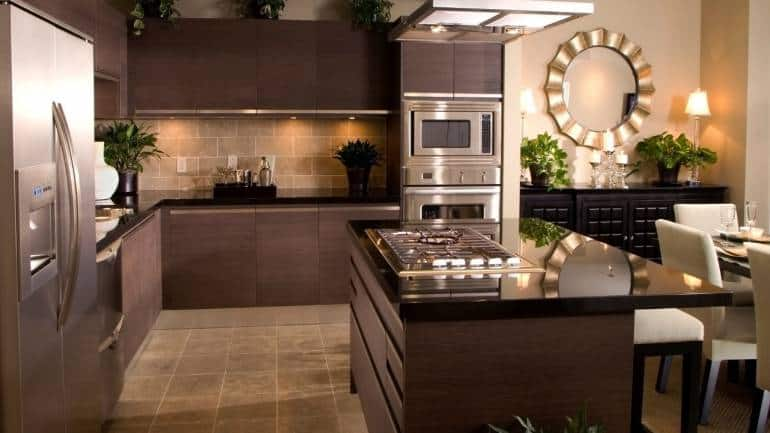
KITCHEN DESIGN TIPS: TRANSFORM YOUR KITCHEN INTO AN ECO-FRIENDLY HAVEN WITH THESE EXPERT DESIGN IDEAS
The way modern kitchens are designed and the materials used can greatly impact the environment. Some kitchen designs often focus more on looks and practicality than sustainability, leading to higher energy use, depletion of resources, and increased waste. Materials such as virgin wood and non-recyclable plastics contribute to deforestation and landfill waste. Energy-hungry appliances and ineffective lighting systems raise carbon emissions and strain energy sources. Plus, inefficient waste management adds to pollution and harms ecosystems.
Thus, to minimise environmental damage and support sustainable living, it is increasingly becoming important to prioritise eco-friendly practices in kitchen design. Speaking about the importance of sustainable kitchen design Gaurav Malhotra, Managing Director of Hansgrohe India, shares practical steps for conserving water and promoting sustainability at home. “Modern homes can go eco friendly by installing water-efficient fixtures and opting for sustainable materials like bamboo or reclaimed wood in cabinetry and countertops. Besides, choosing energy-efficient appliances and effective waste management strategies, like including recycling and composting, also help minimise landfill impact.”
Here are some measures you can take to transform your kitchen into a sustainable haven:
Water-efficient taps and mixers: Choose taps and mixers equipped with water-saving technologies like low-flow aerators and flow limiters, reducing water consumption without compromising performance. Look for eco-friendly certifications such as WaterSense or WELS to ensure maximum efficiency.
Chic kitchen technology: Smart appliances, lighting systems, and thermostats can be programmed to optimise energy usage and reduce waste. Integrate smart technology into your kitchen design to enhance efficiency and convenience.
Smart drainage and sinks: Choose kitchen sinks equipped with smart drainage systems for optimal water conservation. These advanced technologies regulate water flow efficiently, reduce wastage by precisely managing drainage based on usage. Smart drainage minimises unnecessary water usage and ensures eco-friendly practices in the kitchen.
Effective waste management: Implement effective waste management strategies by including bins for recycling, composting, and general waste. This simplifies waste segregation and diminishes landfill impact.
Multifunctionality sinks: Look for models with integrated cutting boards, colanders, or drying racks to streamline meal preparation and cleanup processes. Additionally, consider sinks with shallow basins or rinse grids that require less water for washing and rinsing dishes.
Durable and sustainable materials: Choose taps, kitchen mixers, and sinks made from durable and sustainable materials such as stainless steel, brass, or recycled metals. These materials not only ensure longevity and reliability but also minimise environmental impact by reducing the need for frequent replacements.
Reusable kitchenware: Replace disposable kitchenware like paper towels, plastic bags, and single-use containers with reusable alternatives such as cloth towels, glass containers, and stainless steel food storage containers. This reduces waste and saves money in the long run.
Energy-efficient appliances: Prioritise appliances with high energy efficiency ratings. These appliances consume less energy, which can significantly decrease your carbon footprint and reduce energy costs over time.
Natural lighting: Maximise natural lighting in your kitchen by adding large windows, skylights, or light tubes. Natural light reduces the need for artificial lighting during the day, cutting down on energy use.
2024-06-24T07:43:23Z dg43tfdfdgfd